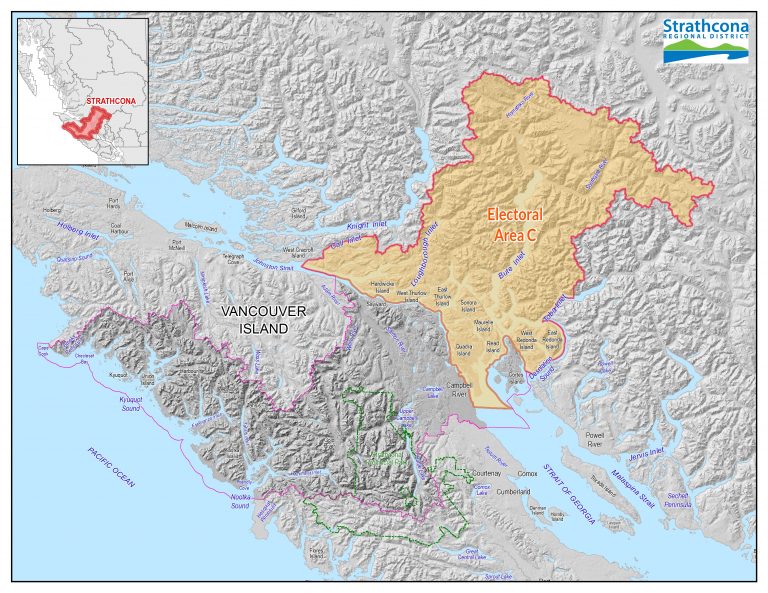By Roy L Hales
The latest version of a Strathcona Regional District staff report on directors input into the reporting process was not received by the Electoral Areas Services committee. Cortes Island Regional Director Noba Anderson said. “I think that’s the first time I’ve ever voted in opposition to receipt of a report in 12 years.” Regional Directors Jim Abram and Brenda Leigh joined her in opposition.
Should Staff consult with directors?
The key issue was whether staff should consult with directors before bringing forward reports about their areas.
Regional Director Gerald Whalley thinks the current system works, “ … The way I look at this, and I think it is work considering, is that when staff gives us a report, as the Electoral Areas Services Committee, on various topics that we are previously unaware of, we should consider this as written notification with the director. Because once it comes here, the director is free to do whatever they want.”
They can accept staff’s recommendation, defeat it, or make a totally different motion.
“I agree,” said Chief Administrative Officer David Leitch.

Electoral Area A (Gerald Whalley) covers approximately 9,050 square kilometres and is comprised of the Villages of Gold River, Tahsis & Zeballos – courtesy SRD website
Save a lot of time & frustration
Directors Abram, Anderson and Leigh believe it would save a lot of time and frustration if directors were involved in the process.
Anderson said she understand staff’s concern about directors having too much influence in reports, but she missed the era when staff and directors worked together as a team.

Electoral Area B (Noba Anderson) includes all of Cortes Island and the surrounding Archipelago Islands and is the smallest region within the Strathcona Regional District (SRD) at just under 330 square kilometres – courtesy SRD website.
“… There were more regular conversations between staff working on reports and myself about things that were happening in this area. I could offer any insight. Staff could take it or leave it. I certainly was not strong arming them, but my knowledge of the area was sought and considered valuable to integrate into recommendations … “ explained Anderson.
“That’s no longer the case. What happens now is staff makes their best possible recommendations, quite often without a lot of knowledge about what’s happening on the ground.”
Decisions made in ignorance

Electoral Area C (Jim Abram) covers approximately 10,650 square kilometres, including Quadra Island, Read Island, Redonda Island, Port Neville, Refuge Cove, Hardwick Island, East & West Thurlow Islands & Mainland Inlets – courtesy SRD website
After reports reach the board, the area director is in a minority and the decision is made by “a lot of other directors who don’t know a lot about it.”
“I almost never know what is happening between the Regional District and the community unless it either comes on the agenda, or I hear about it from my community members. That is really disheartening to me,” said Anderson.
Abram agreed, “I absolutely support every word that she said. I couldn’t have said it any better.”
“This whole report is just flying in the face of that. It’s at the core of the [dysfunctional] problems with the SRD.” said Regional Director Brenda Leigh.

Electoral Area D (Brenda Leigh) covers just under 1,850 square kilometres. The area runs from Jubilee Parkway to the Oyster River and east into the Strathcona Provincial Park – courtesy SRD website
So, in a 3 to 1 vote, the Electoral Areas Services Committee decided to not receive this staff report.


